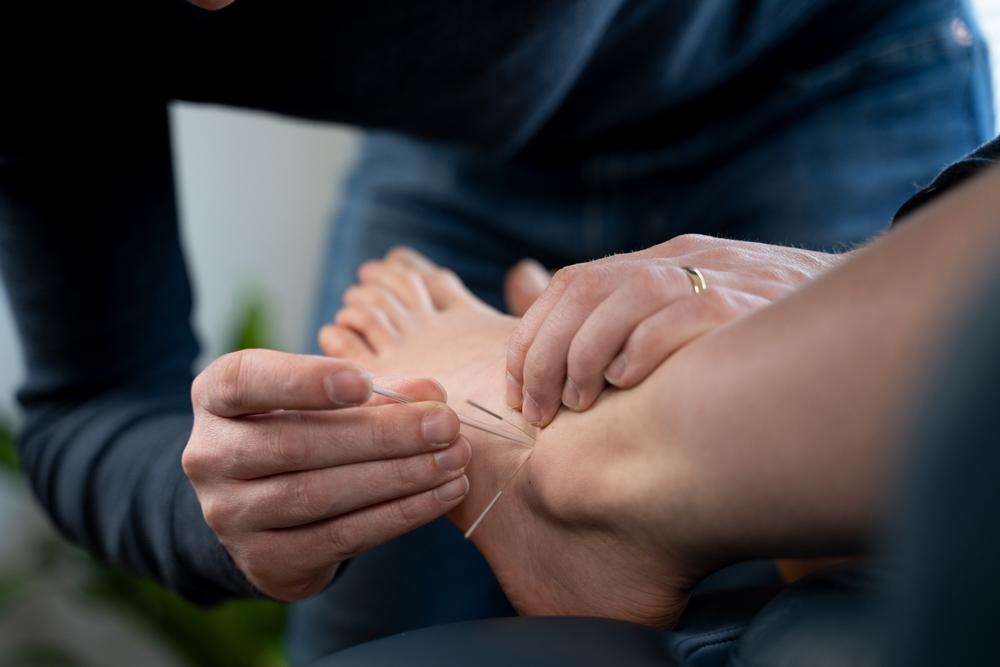
Legislation that would let physical therapists in Oregon use needling to relieve pain, order X-rays, administer vaccines and engage in spinal manipulation is advancing despite concerns raised by Oregon acupuncturists, chiropractic doctors and others.
House Bill 3824, which was moved by the Senate Health Care Committee Tuesday, beefs up the oversight of physical therapists and gives them new authorities, such as to prescribe durable medical equipment, use needles to relieve pain, and engage in spinal adjustments.
Physical therapists and others had come out in droves to support the bill, saying it would improve access for patients and help address shortages of other types or providers.
But critics raised concerns that the bill goes too far, including, the Oregon Association of Acupuncturists, the Oregon Chiropractic Association, the National College of Natural Medicine in Portland and the National Certification Commission for Acupuncture and Oriental Medicine.
Efforts to amend the bill to remove needle therapies and limit manual therapy did not succeed.
Amber Reding-Gazzini, board president of the Oregon Association of Acupuncturists, told The Lund Report that she is disappointed at the committee's action and her group hopes to educate Senators and members of the House to stop or improve the bill. Otherwise, she said, “I think people are going to get hurt.”
Bill will affect nearly 7,000 providers
According to the most recent state numbers provided, there were 5,463 licensed physical therapists and 1,364 licensed physical therapy assistants in Oregon in 2022.
Among other things, supporters said, the bill would align Oregon with best practices such as by allowing physical therapists to order and interpret imaging and certify a patient's disability placard or license plate application. It also would expand the ability of state regulators to oversee physical therapists, including complaints related to sexual misconduct.
But acupuncturists took issue with an aspect of the bill allowing the use of “dry needling” — a practice allowed for physical therapists in some states.
According to the Cleveland Clinic, dry needling is a treatment used for “pain and movement issues associated with myofascial trigger points … The needles stimulate your muscles, which causes them to contract or twitch. This helps relieve pain and improve your range of motion.”
Gibran Ramos of Koa Tree Health in Portland wrote in testimony that “Authorizing physical therapists, who are not regulated by the [Oregon Medical Board] to perform dry needling directly contradicts current statute and bypasses the Acupuncture Advisory Committee, which was established to set rigorous educational and safety standards. This is not a semantic or turf issue; it is about public safety and regulatory consistency.”
For other acupuncturists, it infringed upon their business: “How is it safe or fair for a practitioner to just take a short seminar and tack on a completely foreign medical procedure onto their clinical tools?” one wrote. “We as acupuncturists have gone through rigorous training and licensure to practice the medicine we love. Physical therapists are simply seeing a powerful clinical tool and looking to co-opt it without regard to its origins or risk to patients that nominal training presents to their patients.”
But others disagreed. Dr. Karen Oyama, a retired pathologist, wrote that the bill would allow “primary care physicians to focus on more complex medical issues that require their specific expertise.”
In all, more than 1,200 people submitted written testimony on the bill, divided between support and opposition.
Meanwhile, another bill that would expand the use of needles is headed for a Senate vote after passing the House.
House Bill 2143 would allow someone who is not an acupuncturist to administer what’s known as the “five-needle protocol” if they have completed an approved training program. Developed in the 1970s, the technique is thought by some to reduce the craving for drugs. More than half of states already have similar laws in place.